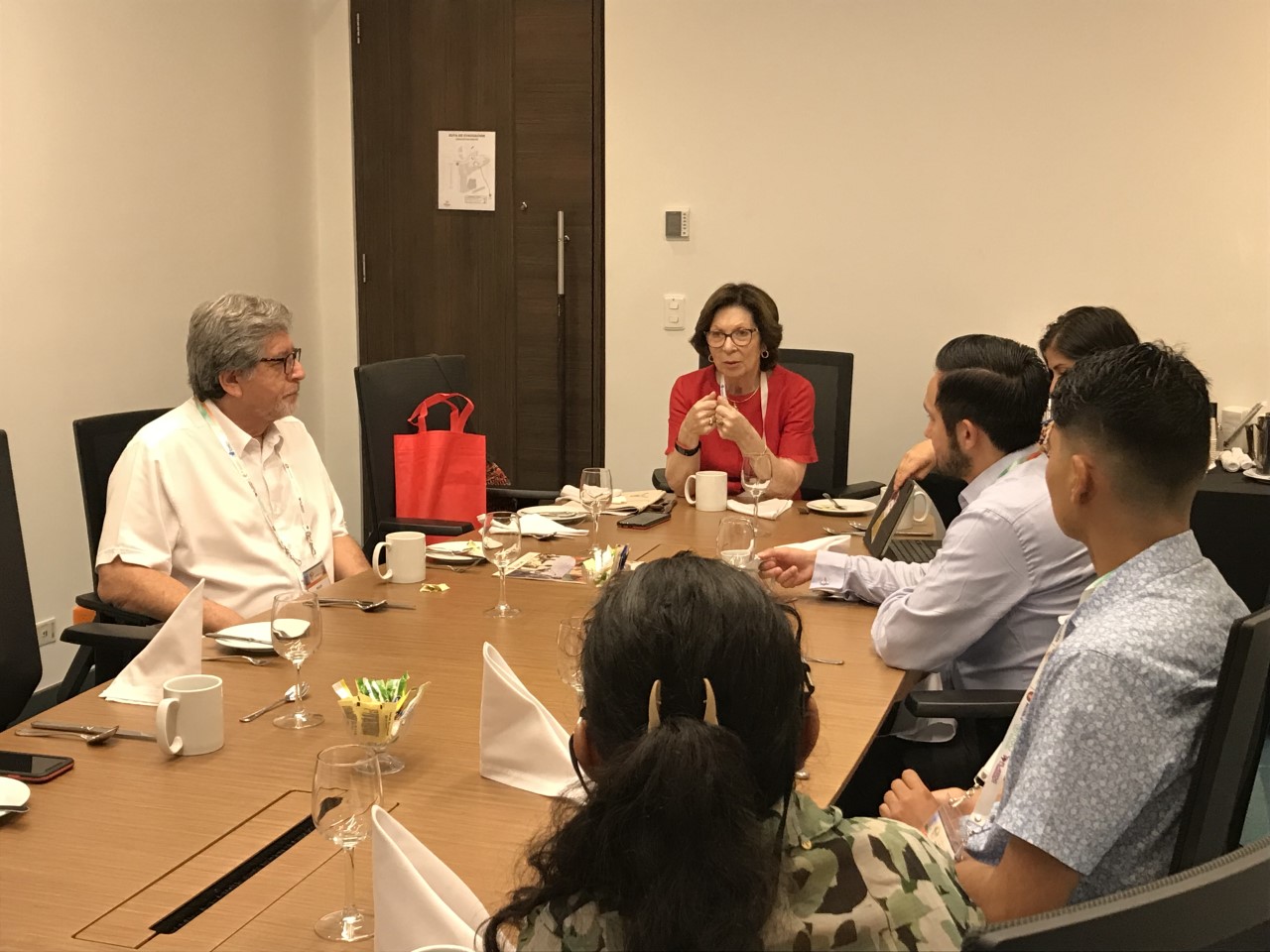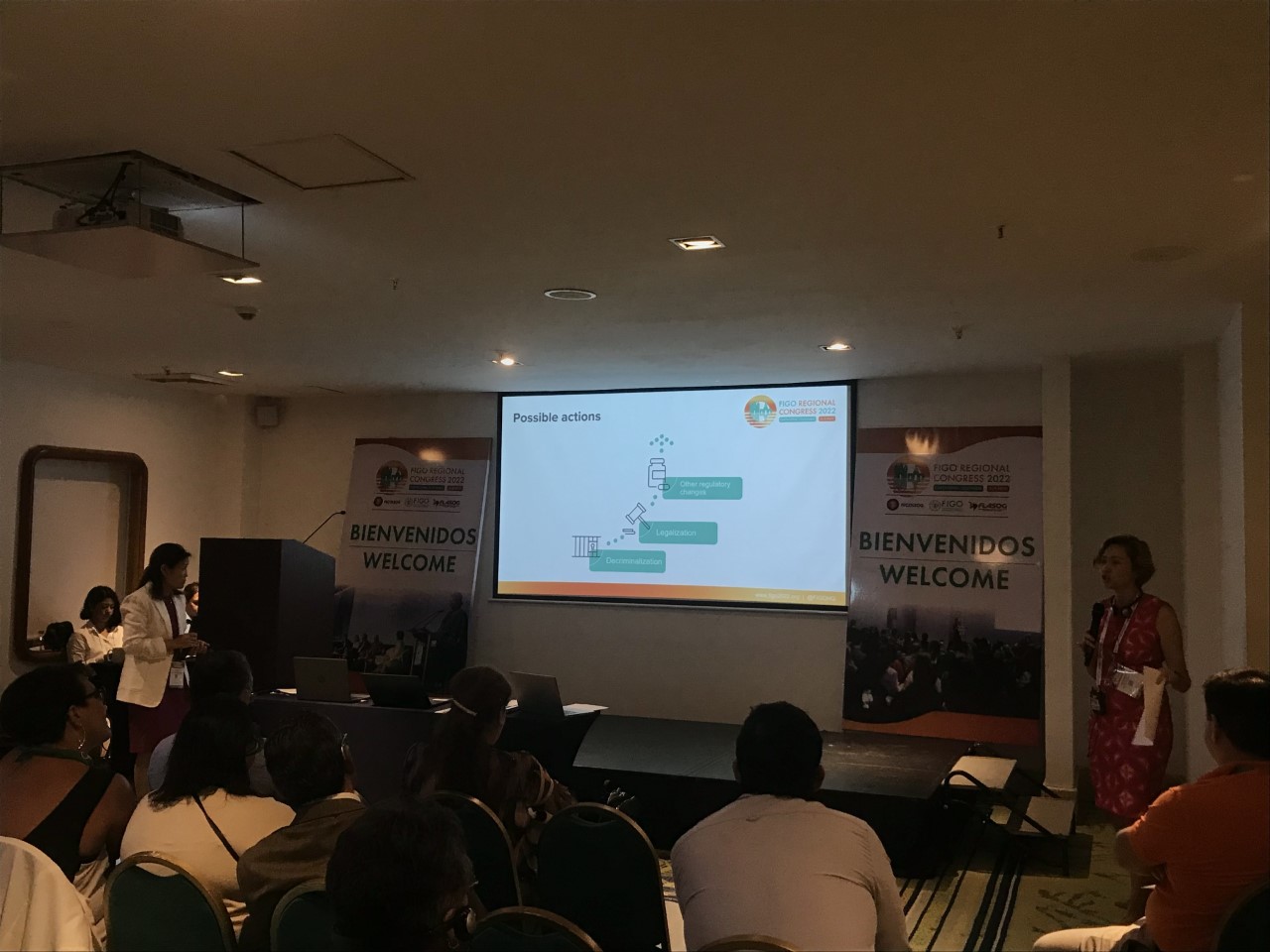FIGO Regional Congress – Cartagena 2022: Day three round-up
On 3–5 November, FIGO leaders from around the world welcomed hundreds of clinicians and decision-makers in women's health and rights to Cartagena, Colombia, for the FIGO Latin America Regional Congress.
Day three of the Regional Congress featured sessions on reproductive rights and safe abortion care, with FIGO Committees leading a number of topic discussions. Here, we share some of the highlights from the key sessions.
Breakfast session: Inculcating reproductive rights in patient care
This breakfast session, organised by FIGO’s Committee on Women Facing Crisis: Human Rights, Refugees and Violence Against Women, focused on inculcating reproductive rights in patient care, with a focus on the Latin American context.
Dr Diana Galimberti underlined the need for doctors to educate patients about their sexual and reproductive rights as an essential part of medical care. She also highlighted that gender-based violence is, above all, a political issue that must be addressed through national policy and initiatives. She stressed the need for better training of health care professionals to better support all patients, include men who are victims of violence and members of the LGBT+ community, who continue to receive abuse and lack of support in medical settings.
Dr Miguel Gutierrez emphasised the stigma that surrounds discussions about abortion, stressing that doctors need to see defending the right to safe and accessible abortion care as a means to protect women’s rights to life and health. He praised the benefits of using legal frameworks and international norms to back up arguments to defend abortion rights, as these can increase legitimacy when faced with anti-abortion sentiments and policies.

Workshop: Quality abortion care and abortion beyond 20 weeks
In a collaborative workshop organised by the World Health Organization (WHO) and the FIGO Committee on Safe Abortion, participants heard an overview of the WHO abortion care guidelines as well as a presentation on the WHO family planning and comprehensive abortion care toolkit for the primary health care workforce. Attendees were invited to fill out a self-assessment to measure the quality of the abortion services in their facilities, giving insights into the challenges faced in hospitals and clinics across the Latin American region. This was followed by a presentation on implementation research in Latin America and the Caribbean.
Dr Helena Paro gave a presentation on the necessity of abortion beyond 20 weeks. The social and emotional aspects of abortion, notably late abortion, were then discussed, with Dr Joaquin Gomez focusing on how the taboo of abortion affects women’s decision to choose in Latin America. From being accused by their health care professionals of murder to betraying God, women are made to feel unsafe or unsure. Identifying the patriarchal system as one of the key culprits, Dr Gomez emphasised the importance of dialogue on equality.
“Men have a responsibility to be implicated in this advancement, and not use their power to dominate and control women. The need of late abortion can occur to any woman at any moment in their reproductive life independently of socioeconomic factors.”
– Dr Joaquim Gomez
In the final address on techniques for abortion beyond 20 weeks, Dr Julio Camelo gave an overview of the techniques for a late termination of pregnancy as well as highlight the different associated risks. He mentioned that complications in a late termination of pregnancy were more frequent than in the first trimester but remained low. The two techniques, medical and surgical procedures, included dilation and evacuation, hysterotomy and hysterectomy, and induction with medicines. The session proceeded to cover the different stages and components of the procedures and what was deemed most effective such as Dilipan over misoprostol.

Keynote lecture: The C-Scar Defect: Its Role in the Genesis of AUB and Other Symptoms
Dr Francisco Ruiloba writes:
This keynote lecture was delivered by Dr Ally Murji, Associate Professor of Obstetrics and Gynecology at the University of Toronto, and a member of FIGO’s Menstrual Disorders and Health Related Impacts Committee.
The session detailed how caesarean rates are increasing worldwide and with it, the incidence of caesarean scar defects - the incidence of caesarean scar defects lies anywhere between 19.4 to 88% depending on several factors such as the population. Caesarean Scar Defects can contribute to infertility, pain, ectopic pregnancies, and Abnormal Uterine Bleeding (AUB).
Dr Murji identified that there is a specific unique AUB pattern associated with Caesarean Scar Defect that is related to its pathophysiology. Symptomatic patients with Caesarean Scar Defect usually report prolonged menstruation and early cycle intermenstrual bleeding.
After using the Bradford Criteria to analyse causality between the Caesarean Scar Defect and the aforementioned symptomatology, Dr Murji explained why the Caesarean Scar Defect deserves a place on its own FIGO classification systems.
Helping to move Latin America closer to achieving its scientific, health care and sustainable development goals, the FIGO Regional Congress was hosted in collaboration with the Federación Colombiana de Obstetricia y Ginecología (FECOLSOG) and the Federación Latinoamericana de Sociedades de Obstetricia y Ginecología (FLASOG).